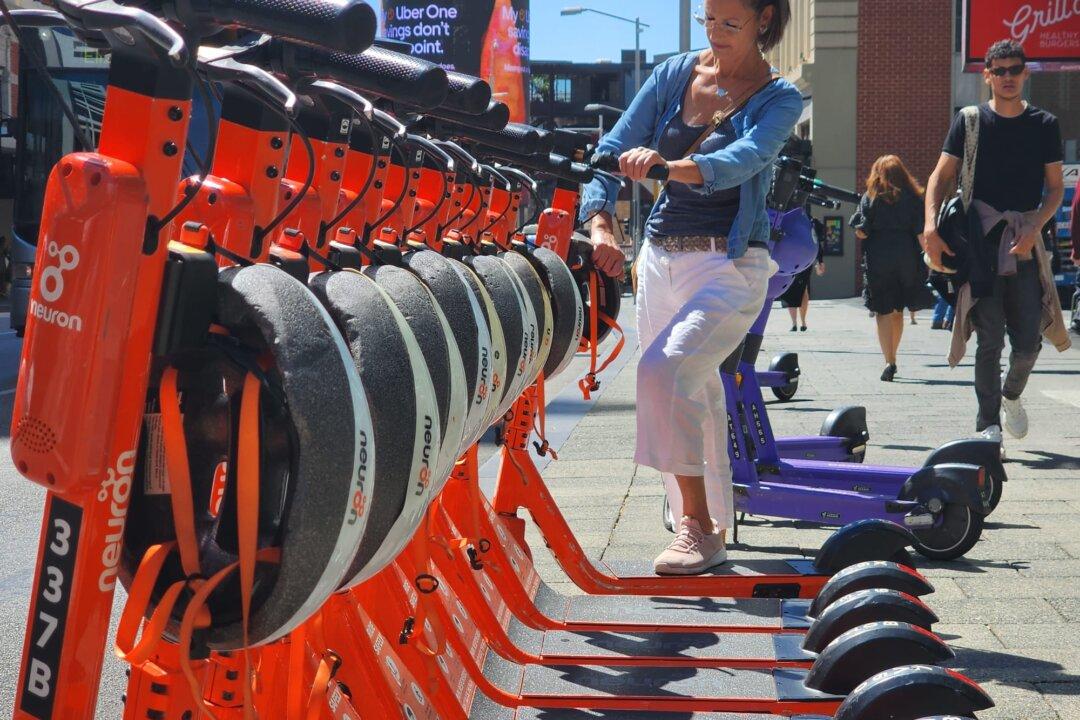Despite a push to encourage eco-friendly travel options, Melbourne police have intensified enforcement of electric scooter regulations, issuing over 300 fines for violations such as riding on footpaths and not wearing helmets.
A two-day blitz by Victoria Police saw 137 e-scooter riders receive fines for not wearing helmets, which incurs a $240 fine, and a further 73 for riding on the footpath—which is illegal in Melbourne.





